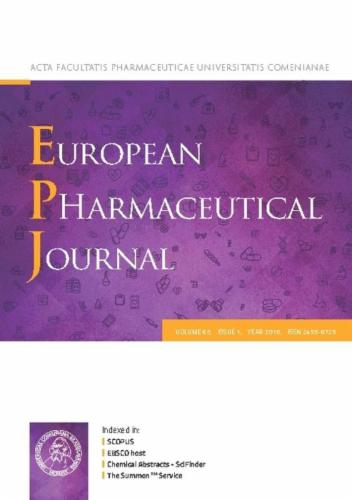评价猪肠溶胶囊的药物吸收:胶囊大小对胃排空的影响。
IF 4.7
3区 医学
Q1 PHARMACOLOGY & PHARMACY
引用次数: 0
摘要
新型给药系统的发展取决于可靠的临床前动物模型的可用性及其对人类的可转译性。猪模型在预测基于相似解剖和生理特征的人的剂型相关因素方面特别有趣。然而,据报道,大型非崩解胶囊在猪胃中滞留时间较长,这对猪模型用于探索肠剂型的实用性提出了质疑。本研究检测了胃耐药胶囊Capsugel®Enprotect®(0、1和2号)的胃排空。促动力剂甲氧氯普胺被评价其促进胃排空的潜力。对乙酰氨基酚和咖啡因作为标记药物。采用药代动力学参数评估胃排空,并在24小时内收集血液样本。研究表明,Capsugel®Enprotect®胶囊可从胃中清除,平均吸收时间为3.9至8.1小时。被测胶囊大小之间无统计学差异。然而,随着胶囊大小的增加,胃排空速度有减慢的趋势。总的来说,胃排空似乎比人类通常看到的要慢,这限制了研究结果的直接可翻译性。甲氧氯普胺的施用没有加速胃排空或改善个体之间的一致性。虽然胶囊比大剂量单片剂型更快地从胃中排空,但与人类相比,胃停留时间更长仍然是一个限制,在解释和推断数据时应考虑到这一点。本文章由计算机程序翻译,如有差异,请以英文原文为准。

Evaluating drug absorption from enteric capsules in pigs: Impact of capsule size on gastric emptying
The development of novel drug delivery systems is contingent on the availability of reliable preclinical animal models and their translatability to humans. The pig model is of particular interest in predicting dosage form-related factors in humans based on similar anatomical and physiological features. However, it has been reported that large non-disintegrating capsules show prolonged retention in the porcine stomach, which questions the utility of the pig model for exploring enteric dosage forms. The present study examined the gastric emptying of gastro-resistant Capsugel® Enprotect® capsules (sizes 0, 1, and 2). The prokinetic agent metoclopramide was evaluated for its potential to enhance gastric emptying. Paracetamol and caffeine were used as marker drugs. Pharmacokinetic parameters were employed to assess gastric emptying, with blood samples collected over a 24-hour period. The study demonstrated that Capsugel® Enprotect® capsules were cleared from the stomach, with mean absorption times ranging from 3.9 to 8.1 hours. There was no statistically significant difference between the tested capsule sizes. However, a trend toward slower gastric emptying with increasing capsule size was observed. In general, gastric emptying appeared to be slower than what is typically seen in humans, which limits the direct translatability of the findings. The administration of metoclopramide did not accelerate gastric emptying or improve consistency between individuals. Although the capsules emptied from the stomach more quickly than large monolithic dosage forms, the longer gastric residence compared to humans remains a limitation and should be taken into account when interpreting and extrapolating the data.
求助全文
通过发布文献求助,成功后即可免费获取论文全文。
去求助
来源期刊
CiteScore
9.60
自引率
2.20%
发文量
248
审稿时长
50 days
期刊介绍:
The journal publishes research articles, review articles and scientific commentaries on all aspects of the pharmaceutical sciences with emphasis on conceptual novelty and scientific quality. The Editors welcome articles in this multidisciplinary field, with a focus on topics relevant for drug discovery and development.
More specifically, the Journal publishes reports on medicinal chemistry, pharmacology, drug absorption and metabolism, pharmacokinetics and pharmacodynamics, pharmaceutical and biomedical analysis, drug delivery (including gene delivery), drug targeting, pharmaceutical technology, pharmaceutical biotechnology and clinical drug evaluation. The journal will typically not give priority to manuscripts focusing primarily on organic synthesis, natural products, adaptation of analytical approaches, or discussions pertaining to drug policy making.
Scientific commentaries and review articles are generally by invitation only or by consent of the Editors. Proceedings of scientific meetings may be published as special issues or supplements to the Journal.

 求助内容:
求助内容: 应助结果提醒方式:
应助结果提醒方式:


